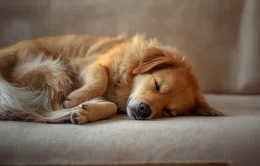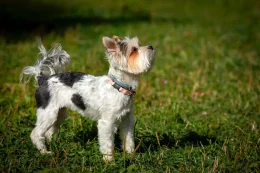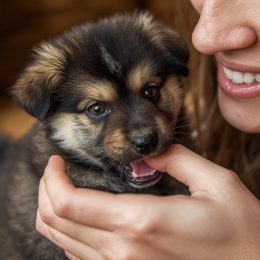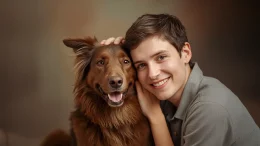
- Home
- Owning a Dog
- Reflective Eyes Explained: Why Do Dogs’ Eyes Glow at Night?
Reflective Eyes Explained: Why Do Dogs’ Eyes Glow at Night?
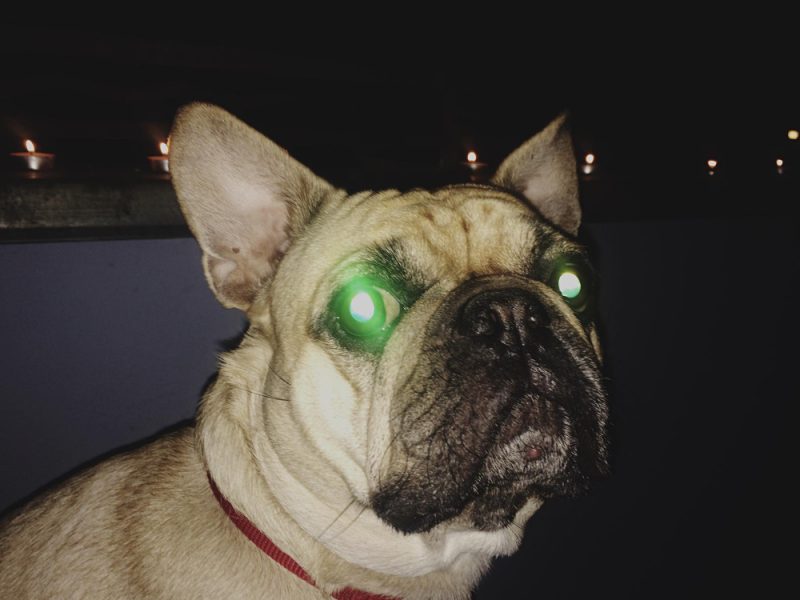
Have you ever taken a photo of your dog at night or spotted their eyes shining back at you in the dark? It’s not just a spooky or cute coincidence—it’s actually due to an amazing biological feature that helps your dog see in low light.
This glowing effect is thanks to something called the Tapetum Lucidum—a reflective layer of tissue located behind the retina in many animals, including dogs, cats, and even horses. The Tapetum acts like a mirror, bouncing light back through the retina and giving photoreceptor cells a second chance to register it. This dramatically improves vision in dim conditions and is a key reason dogs can move confidently through the house at night while we stub our toes on the coffee table.
Dogs See the World Differently
Unlike humans, who rely on cone cells to see sharp detail and vibrant colour in daylight, dogs have more rod cells in their eyes. These are the cells responsible for detecting movement and working in low light. The Tapetum Lucidum amplifies this ability, effectively giving your dog a kind of natural night-vision boost.
Although their vision isn’t as sharp as ours in bright light, dogs have the advantage once the sun goes down. This is especially helpful for breeds historically used for hunting, herding, or guarding after dark.
Why Do Their Eyes Glow Different Colours?
The reflective glow you see in photos or when a torch hits your dog’s eyes can vary in brightness and colour. This depends on several factors:
- Breed and genetics – Some breeds have more prominent reflections than others.
- Age – As dogs age, the clarity of the eye may change, altering how the reflection appears.
- Angle and intensity of light – A camera flash or torch held at the right angle will often produce a more noticeable glow.
- Pupil dilation – The wider the pupil (like in low light), the more light gets in—and reflects back out.
The most common glow is greenish-yellow, but some dogs reflect blue, orange, or even red. If you’ve got a Boxer, Labrador, or a dog with large, expressive eyes, you may have noticed this even more.
Is It Ever a Cause for Concern?
In most cases, glowing eyes are completely normal and nothing to worry about. However, any sudden changes in eye reflection, colour, or appearance—especially if one eye starts to look different from the other—could be a sign of an underlying issue.
Things to keep an eye out for include:
- Cloudy eyes or a bluish haze (which could indicate age-related changes or cataracts)
- Uneven or dull reflection
- Excessive tearing, redness or squinting
- Sensitivity to light
- Hesitation to move in dim lighting
If you notice anything unusual, it’s best to book in with your vet for a closer look. Eyes are delicate, and early intervention can make a big difference.
Dogs, Darkness, and Their Natural Instincts
Many dogs are naturally more alert and active during dawn and dusk—what we call crepuscular behaviour. This is a leftover trait from their wild ancestors who hunted in the low light of early morning and evening. The Tapetum Lucidum was a vital part of their survival toolkit, allowing them to track movement and detect threats with minimal light.
Even though your modern pet may not need to stalk prey in the bush, they’ve retained this incredible biological advantage.
Final Thoughts
Next time you catch a glimpse of that glowing eye shine, you’ll know it’s not magic—it’s biology! The Tapetum Lucidum is just one of the many fascinating features that make dogs so well adapted to life as our loyal companions.
At Jordan Dog Training, we’re passionate about helping people understand their dogs better—from behaviour and training to the science behind what makes them tick. For more interesting facts and science-based tips, visit our blog at www.jordandogtraining.com.au, or follow us on Facebook and Instagram.
Disclaimer:
This article is intended as general guidance only and is not a substitute for veterinary advice. If you have any concerns about your dog’s eye health or notice any changes, please consult your veterinarian promptly for professional assessment and care.

Justin Jordan
Master Trainer
- In-home behaviour modification consultations
- Puppy schools
- Obedience classes
- Specialist training
- Media enquiries
- Trainer opportunities
- Supplier enquiries
- Guest appearances












